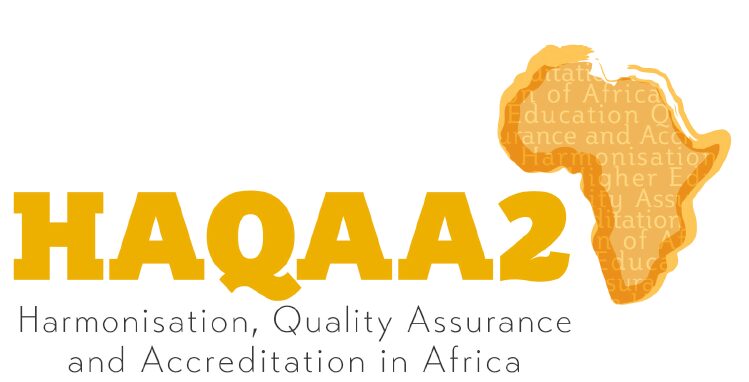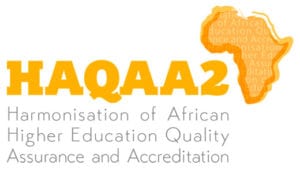Adapting QA practices in times of Covid: Lesson learnt by HAQAA Ambassadors
Continuity of pedagogical and quality assurance activities in public and private Higher Education Institutions (HEIs) in Senegal
Introduction
In the period from June to July, 2020, ANAQ-Sup organized a series of eight (8) webinars for the purpose of assessing, in this context of COVID 19, the level of continuity of pedagogical activities and development of quality assurance activities in public and private HEIs in Senegal.
To this end, 59 private and 12 public HEIs, which interact regularly with ANAQ-Sup as part of its evaluation procedures, participated in the webinars to share the strategies implemented as well as the difficulties encountered and the challenges to be overcome.
This article presents the lessons learnt from the webinars, challenges encountered, initiatives and experiences deemed successful, and recommendations which ANAQ-Sup is continuing to incorporate in its evaluations.
A general tendency to ensure pedagogical continuity through distance education (online courses)
In the private sector, with the exception of one institution, all HEIs that participated in the webinars indicated that they had continued their pedagogical activities through distance education, particularly through the administration of online courses.
Among public HEIs, there was some disparity. Three (3) categories of HEIs were identified:
- HEIs that have continued pedagogical activities with online teaching modalities;
- HEIs that have partially started distance learning with levels of implementation that vary from one UFR/ or faculty to another;
- HEIs that have stopped teaching.
It is also noted that most of the public HEIs worked on developing plans for the resumption of pedagogical activities in accordance with the directives of the Minister of Higher Education, Research and Innovation (MESRI). In almost all HEIs, a structure has been set up (committee, council, etc.) to prepare a plan for the resumption of teaching that integrates both face-to-face and distance learning methods.
Factors favorable to the continuity of pedagogical and quality assurance activities have been underlined
- The existence of structures dedicated to online teaching in universities such as the Institutes of Open Distance Learning (IFOAD);
- It is easier to conduct online courses with students who already have some higher education experience (master and doctorate);
- Courses without practicum or lab are easier to conduct;
Initiatives taken to accompany distance learning
- Preparatory consultations of stakeholders, intended to help them make choices and strategies;
- Training in distance education for teachers, and students,
- Writing protocols to organize training procedures, software selection processes, etc.
Diversified platforms chosen according to functionality, user-friendliness, adaptation to the context, cost, etc.
- A variety of platforms are used at the institutional level. They have been chosen on the basis of functionality, user-friendliness, applicability, cost, etc.
- The most commonly used platforms are: Google Suite Education, Webex, BigBlueButton, Blackboard Collaborate, Cisco webex training, Go to training, Google Classroom, Google Meet, LEA’GEST pro (Neotechafrique), Managexam, Microsoft Teams, Moodle, Skype, Slack, Talent soft, WhatsApp, Zoom, etc.
Update on the continuity of evaluation and quality assurance activities
Overall, it was noted that there is continuity in quality assurance activities in both public and private HEIs: involvement of the CIAQ (Cellules Internes d’Assurance Qualité) in the various processes of implementation of pedagogical continuity; continuity of self-evaluation procedures with online interactions with ANAQ-Sup and mixed external evaluation (on-site visit for some of the experts) and remote participation of other experts.
Difficulties noted in the context of the continuity of pedagogical and quality assurance activities
The main difficulties mentioned by the HEIs are:
- Pedagogy: Difficulties in conducting certain scientific, technical and technological courses; Difficulties in offering courses that require practical work (TP); Difficulties in organizing internships; Difficulties in organizing evaluations, particularly summative evaluations; Difficulty in following up on pedagogical activities; Involvement of temporary employees.
- Adherence of all actors to the training model (students, parents of students, teachers);
- Insufficient basic computer skills of teachers and students
- Problems with connection, connectivity and computer terminals;
- Equitable and inclusive access to digital resources
Recommendations
- To take all necessary measures, at the legislative and regulatory levels, in order to provide a better framework for the development of distance learning;
- To put in place strategies for the development of distance learning in all HEIs;
- Provide for capacity building actions for the various actors involved in Open and Distance Learning (FAD/FOAD);
- Develop strong policies and incentives in the area of Internet access and computer logistics (platform, computers, software, etc.) to support Open and Distance Learning (FAD/FOAD);
- Strengthen evaluation and quality assurance strategies adapted to the Open and Distance Learning (FAD/FOAD) context;
- Develop a reflection on the issue of student internships in a Covid context;
- Secure and make reliable distance assessments and examinations.

